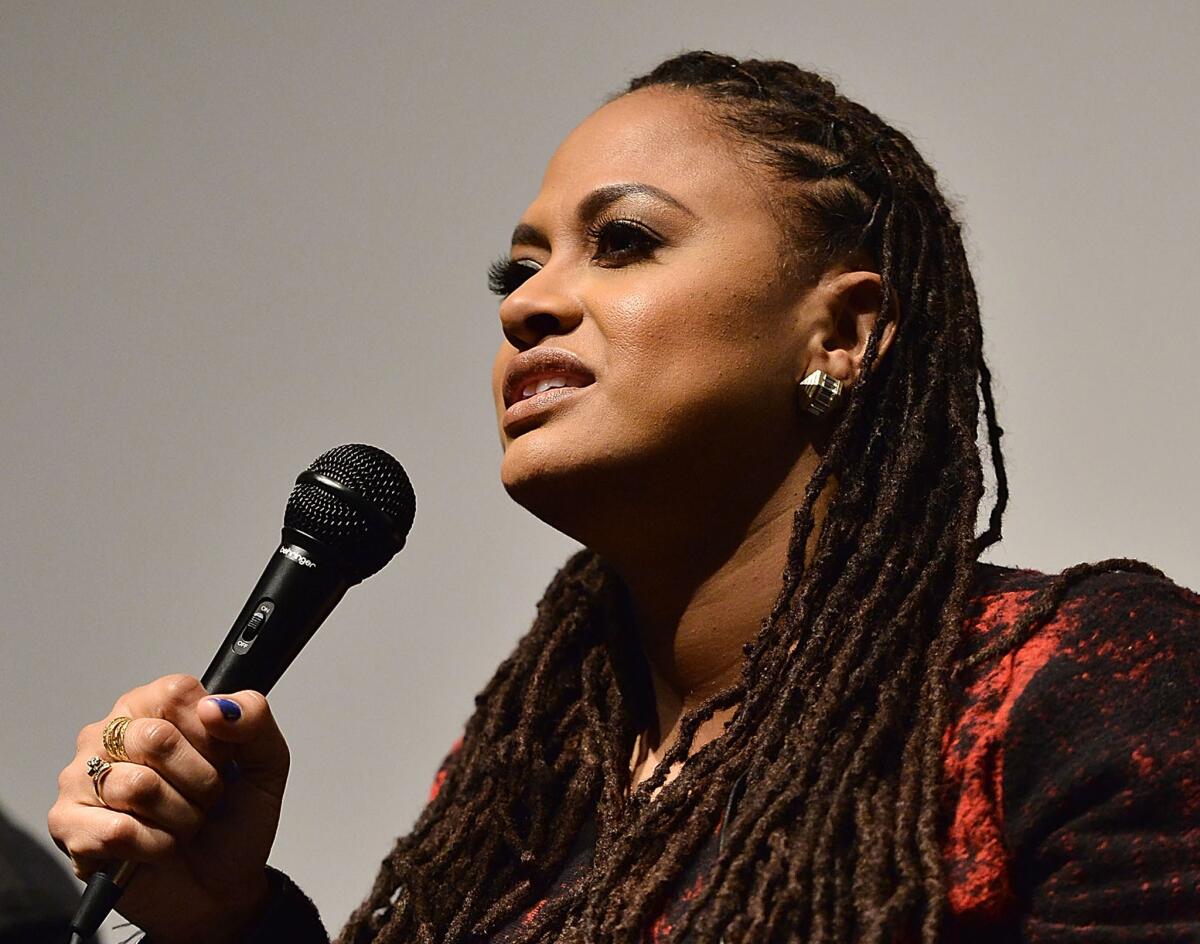The embarrassing number that got Illeana Douglas and TCM to showcase ‘Trailblazing Women’ directors

Ava DuVernay attends the Film Independent’s Directors Close-Up: Ava DuVernay: The Road To “Selma” at the Landmark Theater on February 3, 2015 in Los Angeles, California.
Illeana Douglas is struck by one omission on the American Film Institute’s list of the 100 greatest American movies. There are epics, comedies, science-fiction films and musicals — but there is not a single movie directed by a woman.
“I find that embarrassing. Out of all of the films, they couldn’t find one movie directed by a woman?” Douglas asked. “That just seems odd to me. Why don’t we have more women here? Let’s talk about it.”
Douglas is the host of a new, multi-year programming initiative at Turner Classic Movies called Trailblazing Women, which will profile 47 women directors over the month of October, beginning Thursday with a focus on the silent era and continuing through to the work of such contemporary directors as Kathryn Bigelow and Ava DuVernay.
SIGN UP for the free Indie Focus movies newsletter >>
The cable network, which is producing the programming in partnership with Women in Film/Los Angeles, will highlight such filmmakers as early French cinema pioneer Alice Guy-Blaché, who shot sound films in the 1890s and ran her own studio; Ida Lupino, whose 1950 film noir “Outrage” is the “Citizen Kane” of rape culture; Claudia Weill, whose 1978 comedy “Girlfriends” is the cool big sister to Lena Dunham’s “Girls”; and Julie Dash’s 1988 period drama “Daughters of the Dust,” the first feature film directed by an African American woman to be distributed theatrically in the U.S.
“Young women just don’t know about these films,” Douglas said. “It gives them a sense of, ‘Wow, we don’t have to look up to the same five people. There’s this whole army of women.’”
The programming push comes as the status of women directors in Hollywood is an increasingly contentious issue — in May, the ACLU urged three government agencies to investigate gender discrimination at movie and TV studios.
A Times analysis early this year found that the number of female directors has remained stubbornly low over the last five years, falling to 4.6% last year. The situation has been exacerbated by the industry’s shift toward big-budget comic book and visual effects-driven films over the comedies and dramas that have historically provided the few female directing spots.
The impetus for the Trailblazing Women series was a conversation TCM vice president of programming Charles Tabesh had 18 months ago with representatives from Lionsgate over whether the classic film network would be interested in the rights to the studio’s 2008 movie, “The Hurt Locker,” which earned Bigelow a directing Oscar, the first for a woman.
Tabesh, who organizes TCM’s programming thematically, thought the film could kickstart a look at the legacy of women in Hollywood, beginning with directors and following, in subsequent years, with their work in other facets of the industry.
“We delve into film history in so many different ways,” Tabesh said. “It immediately seemed like an important and relevant thing to do. Women are still underrepresented. There’s a history there that’s important.”
Though women directors worked steadily in the silent era, Tabesh said he was shocked to find only four women — Lupino, Dorothy Arzner, Elaine May and Joan Darling — who directed studio films from the dawn of the sound era through the 1970s.
“Part of the goal was to point that out, and show a gradual evolution as you get into the 1980s when women were making movies outside of Hollywood, in documentaries, independent films, foreign films.”
Films made outside the Hollywood studios which TCM will highlight include Barbara Kopple’s 1977 documentary about a Kentucky coal miners’ strike, “Harlan County, USA,” which won the Academy Award for documentary feature; Barbara Loden’s low-budget 1970 drama “Wanda,” in which Loden, the wife of director Elia Kazan, also plays the title role of an unhappy housewife; and Italian writer-director Lina Wertmuller’s 1973 tale of an anarchist preparing to assassinate Mussolini, “Love and Anarchy.”
The network will also curate a night of films directed by African American woman, including DuVernay’s South L.A.-set 2012 film “Middle of Nowhere,” and a night of mainstream hits, like Nora Ephron’s 1993 romantic comedy “Sleepless in Seattle.”
Many of the movies are difficult to find in other places — Lupino’s “Outrage” has never been released on DVD, and used copies of Dash’s “Daughters of the Dust” are going for $100 on Amazon.
Program co-hosts will include women directors Dash, Allison Anders and Amy Heckerling, as well as producer Cathy Schulman and author Cari Beauchamp.
“Doing the show for me is an emotional experience,” Douglas said, citing the impact of a powerful woman, Gloria Swanson, who played opposite her grandfather, Melvyn Douglas, in his screen debut, 1931’s “Tonight or Never.”
“Women were quite powerful in early Hollywood and we show how things shift,” Douglas said. “It reminded me of the joke they say about the pioneers — they’re the ones with all the arrows in their backs. Oftentimes these women blazed the trail, and they were pushed aside and forgotten about.”
Follow me on Twitter @ThatRebecca
More to Read
Only good movies
Get the Indie Focus newsletter, Mark Olsen's weekly guide to the world of cinema.
You may occasionally receive promotional content from the Los Angeles Times.











